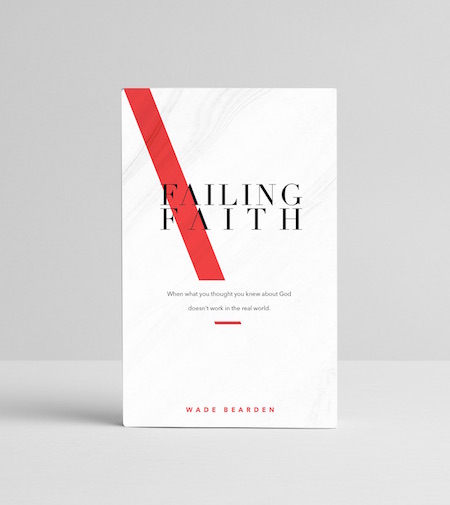
As a child, I remember the first time I saw a mountain. The rugged peek ascended to the sky above; a tip of white capping the crescendo. My South Texas mind realized, as a looked up at the Appalachians, that there is more to this world than my home.
The term “YOLO” (you only live once) has become satirical as of late, but the principle beneath the phrase isn’t going away anytime soon. We’ve got one life to live and we better not waste it. So we eat a package of hot dogs and say YOLO. We skydive. We travel. We do everything in our power not to miss out on life.
In many ways, I agree with YOLO (don’t tell anyone). I have a bucket list—not to be confused with the bucket of chicken I usually keep beside me. Too many of us dwindle our lives away in front of small and large screens, consuming and being consumed. We cite excuse after excuse, playing it too safe. Not taking time to enjoy God’s creation.
But there is an opposite side of the issue we rarely address in our society. It’s the unquenchable stress that comes with living as if this life is all we have. Sure, if you are a person of faith, you might not hold, philosophically, that this world is the end all. But it’s so very easy to disconnect our behavior from our belief.
We stress out over missed opportunities. We fret when our bills don’t allow us to travel. We may even come to resent Christianity because of the life we believe our faith keeps us from experiencing. We live with regret, regret that impairs our future and makes our present miserable. We can be made to feel like we are missing out on objects or activities we will never get back.
As Christians, we’ve been taught that there is life after death. Yet, we often fail to realize the nature of what this life truly holds. Luke has much to say about this issue in a story detailing one of Jesus’ post-resurrection appearances:
And he [Jesus] said to them [his disciples], “Why are you troubled, and why do doubts arise in your hearts? See my hands and my feet, that it is I myself. Touch me, and see. For a spirit does not have flesh and bones as you see that I have.” And when he had said this, he showed them his hands and his feet. And while they still disbelieved for joy and were marveling, he said to them, “Have you anything here to eat?” They gave him a piece of broiled fish, and he took it and ate before them (Luke 24:38-43, ESV).
The Apostle Paul writes that Jesus’ resurrection is the “firstfruits” of our coming resurrection (1 Corinthians 15:20). Meaning, the resurrection Jesus experienced will one day be ours. Here are a few descriptions of Jesus in Luke’s passage:
1. His resurrection isn’t simply spiritual, it’s also physical
2. He can be touched
3. He has flesh and bones
4. He eats
5. His new body is not bound to decay and exists in a realm of higher physicality (his ability to “appear” and—inferring from the text—walk through walls are two examples).
If Jesus’ resurrection is a precursor to our resurrection, this implies we will one day have a new, physical body much like he does. How does this speak to those of us stressing out over missed—or potentially missed—opportunities?
It means this life isn’t everything.
The new heaven and earth won’t be an endless cloud our spirit will hover over in some sort of dream-filled state. We will have a physical body just like Jesus.
We can talk and laugh with each other. We can hug and hold our friends. I can tell jokes and hopefully make you smile. We can eat—Jesus ate fish so I’m hoping for a glorified Long John Silver’s. We won’t be robots or shimmering ghosts. We won’t be under some form of spiritual laughing gas. In many ways, God’s new world will be more physical than the present.
There are moments here on earth when we won’t get to live life to the fullest. We aren’t able to travel because we’re taking care of an aging family member. Health problems keep us from jumping out of an airplane. Our college experience is tame compared to others.
It just might be that some of you are worried you’ll never get married; you’re afraid you’ll never experience the kind of affection you see in other relationships around you. Or, like many others, you’ve lost a love you fear you will never get back.
Here’s what you have to remember: you aren’t “missing” out. The love, joy, and happiness in this life will be multiplied in the life to come. The experiences, the loves of this world, are but a smudged window looking out into eternity. One day we will be able to go outside and see life as it should be. This world is a dream compared to the physicality of the next.
None of the noble qualities of this world—love, joy, excitement, thrill, hope—will be missed by followers of Jesus. This goes for the physical as well. Timothy Keller says, “We won’t just get a new body, we’ll get the body we’ve always dreamed of.” I think I’ll be able to grow a beard in heaven.
In heaven, lost relationships between our Christian friends will be restored. The pain of a bad marriage, memory, or experience will be gone. The regrets of your youth will disappear.
Life here may not be what you want it to be, but grab a hold of the risen Jesus. His physical resurrection ensures our physical future. It is only when we understand this principle that we can fully put the needs of others above our own.
You don’t have to stress when your YOLO looks different from another person’s YOLO.
The flatness of this world doesn’t touch the awe-inspiring mountain of the next.
I owe the inspiration behind this blog to a sermon preached by Timothy Keller in 1998. You can listen to the message here.




